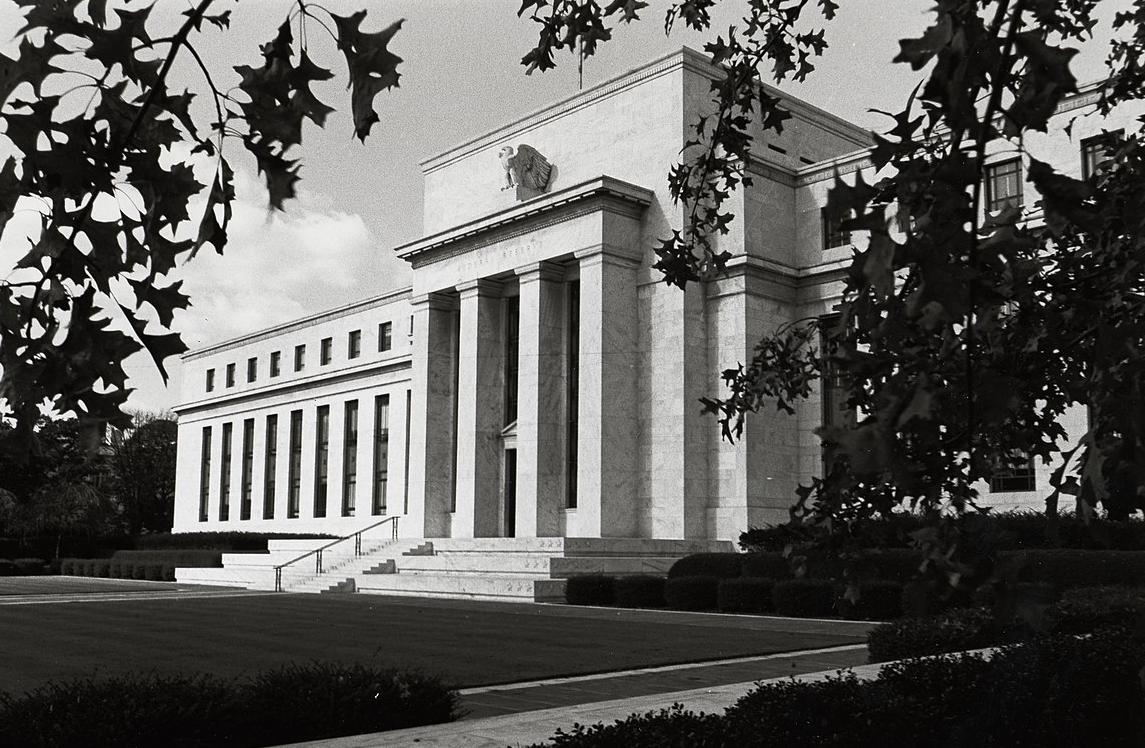
At TheMoneyIllusion, commenter Jeff recently argued:
A common sense objection JSP [Joe SixPack] might make would be to ask for proof that authorities even *can* “stabilize” any of the quantities they talk about targeting. Isn’t it possible that a large economic system is simply too complex to “stabilize” in such a fashion? Has it ever really been demonstrated in all of history, excepting brief interludes supported by fortuitous tailwinds? Potentially, with a lot of effort, you could perhaps stabilize one dimension, one specific quantity, but not without creating such large stresses in other dimensions that you risk ripping apart the entire machine (a la American flight 587:
I can see why people might say this, but I think it’s wrong. It’s true that I’ve suggested that NGDP targeting would help to stabilize the economy. But I bet you could find people who believe that a gold standard would provide for a more stable economy. That doesn’t mean they favor using monetary policy to directly stabilize the real economy. Rather, they think that pegging the price of gold at a fixed amount would indirectly help to provide an environment more conducive to overall economic stability.
I certainly don’t favor trying to stabilize the real economy in the way a communist regime might have attempted with a 5-year plan. Rather I favor stabilizing the value of money, in the hope that this indirectly leads to a more stable real economy.
Instead of pegging the price of gold at a fixed amount, I favor pegging the price of NGDP future contracts at a specific amount. In both cases monetary policy is merely trying to stabilize money in terms of one asset price, not trying to micromanage an entire complex economy.
In the same comment section, commenter Alex S. correctly points out that the Keynesians are the ones that propose a complicated policy of macroeconomic stabilization:
In the Keynesian world (in the policy world, this is the lens that both left- and right-leaning policymakers tend to think of the economy through—though they tend to differ on parameters such as effects of tax cuts) first comes RGDP, then PGDP (GDP price level), and then some afterthought called NGDP. You forecast actual and potential RGDP to get the output gap, and plug that into a Phillips Curve to forecast PGDP (inflation). Then, you combine your RGDP and PGDP forecasts to get NGDP that goes into an appendix, if even that. Thus, NGDP and any target applied to it, is intricately dependent on your RGDP and PGDP forecasts, making it difficult for Keynesians to see the relevance of NGDP.
In the Keynesian world, the interest rate path that is communicated affects the output gap (RGDP against trend RGDP), which then affects inflation (PGDP). In other words, your instrument (interest rate target) comes ahead of your goals because it is your primary way of…wait for it…”communicating the stance of monetary policy.”
This creates a lot of uncertainty about the one thing the Fed actually controls: the expected path of the level of NGDP.
They are the ones guilty of thinking that monetary policy can skillfully control real variables such as real GDP and employment. I say just control one nominal target, and let the real economy adjust to that nominal equilibrium.
PS. There is a rumor that I plan to retire tomorrow. After working almost continually since age 13, I need a break. (I’m almost 67-years old.) But fans of market monetarism should not be discouraged, as not much will actually change. I’ll still be discussing my ideas in my two blogs, and have a book on monetary policy that will come out later this year. The main difference is that I’ll no longer collect a nice 6-figure income for working from home.
Seriously, I’d like to thank all of the people that I worked with at the Mercatus Center. David Beckworth is doing a great job as the monetary policy program director, and I am very optimistic about program’s future. Also thanks to Pat Horan, who did a great job as program manager, and all of the other talented people involved in the program.

READER COMMENTS
Monte
Sep 12 2022 at 8:06pm
The worst thing you can do if you need a break is to retire. Retirement, like nature, abhors a vacuum. Congratulations and condolences!
The trouble with retirement is that you never get a day off – Abe Lemons
Garrett
Sep 12 2022 at 8:07pm
Congratulations on your well-deserved retirement! I’m pleased to hear you’ll continue blogging. I’ve always appreciated your perspective on markets and the economy.
Market Fiscalist
Sep 12 2022 at 10:08pm
Enjoy your ‘retirement’!
Would it be too much to hope for more frequent film reviews as well as continued monetary policy analysis?
Alex S.
Sep 12 2022 at 11:18pm
Thanks for the plug, Scott! Congratulations on your retirement. You’ve earned it! Thank you also for taking a confusing swamp that is macroeconomics and turning it into something crystal clear.
Alex
David S
Sep 13 2022 at 8:25pm
Thanks Scott, but please note that Godard worked into his late 80’s–are you going to let him outdo you?
Scott Sumner
Sep 13 2022 at 10:41pm
But how good were his later films? I want to go out on a high note.
Scott Sumner
Sep 13 2022 at 10:41pm
Thanks everyone.
Thomas Lee Hutcheson
Sep 14 2022 at 12:29pm
I’m all for the Fed trying to control just one nominal variable, maybe the price level trajectory or the NGDP trajectory. But should the control consist of trying to keep the trajectory as close to a constant rate (presumably chosen to maximize real income given the magnitudes of expected shocks and rigidities in the speed of adjustment of relative prices) or should it be constantly trying to jiggle the rate to take account of actual shocks?
Comments are closed.